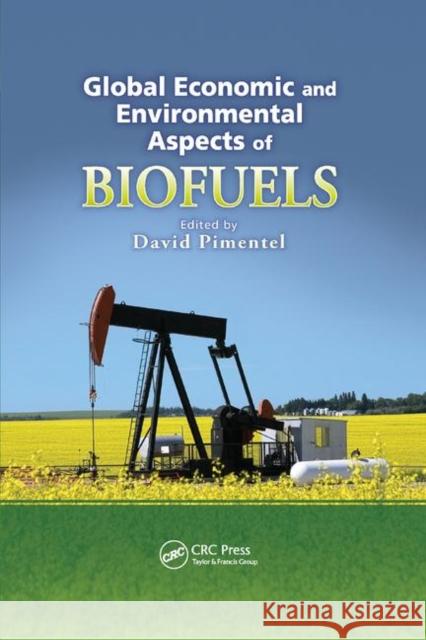Global Economic and Environmental Aspects of Biofuels » książka
Global Economic and Environmental Aspects of Biofuels
ISBN-13: 9781138374362 / Angielski / Miękka / 2018 / 453 str.
Global Economic and Environmental Aspects of Biofuels
ISBN-13: 9781138374362 / Angielski / Miękka / 2018 / 453 str.
(netto: 289,15 VAT: 5%)
Najniższa cena z 30 dni: 287,08
ok. 16-18 dni roboczych.
Darmowa dostawa!
Biofuels and food are dependent on the same resources for production: land, water, and energy. The conjuncture of food, energy, and climate crises demands a new direction in how to harness agriculture to the joint tasks of energy-saving, emissions reduction, and food security. Global Economic and Environmental Aspects of Biofuels focuses on the all-important question of the efficacy of biofuels as a solution to the global energy problem. Written by a distinguished team from five countries and multiple disciplines including agronomy, petroleum engineering, ecology, and meteorology, the book addresses the use of biofuels produced from crops and various organic materials as alternatives or supplements to petroleum. Key FeaturesDiscusses biofuels within the context of the world population problem, food, malnutrition, resource depletion, and climate change Asks the critical question whether the production of ethanol from corn, sugar cane, crop residues, and other organic materials has proven too costly in both economic and environmental termsAnalyzes the uses and interdependencies among land, water, and fossil energy resources in food versus biofuel production Includes case studies on the economic and environmental impacts of biofuel production and use from the United States, Europe, Brazil, and tropical environmentsExplores the future production of biodiesel and ethanol from salt-water algae and tropical palms, while recognizing the technological problems that must be resolved in processing these materialsThis book examines key environmental and economic issues associated with the production of ethanol as a fuel, from corn, sugar cane, crop residues, and other organic materials. It brings together the opinions of a number of U.S. scientists and experts from Spain, Italy, the United Kingdom, and Brazil, and highlights the remarkable agreement among the contributors on the pros and cons of biofuels as an answer to future petroleum shortages. This mix of contributors and opinions presents a well-rounded view of the subject that puts a spotlight on unresolved concerns and complexities that are often overlooked.











